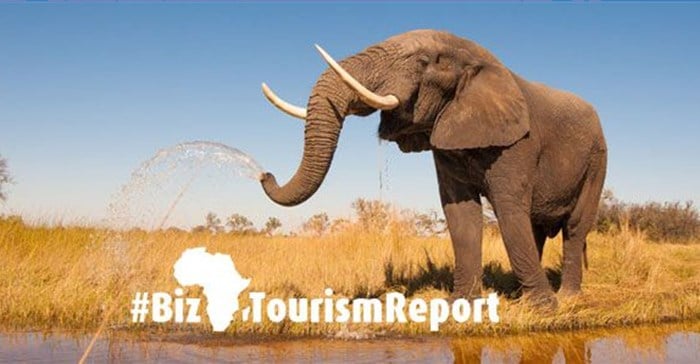Welcome to the first #BizTourismReport for Africa. This article provides an overview of tourism in Africa.
The information included below was the latest available on 8 April 2019.
Economic impact
Tourism is one of the most important industries in Africa and contributed 8.5% (or $194.2bn) of the continent’s gross domestic product (GDP) in 2018, according to the World Travel & Tourism Council (WTTC). Africa was also the second-fastest growing tourism region with 5.6% growth in 2018 against a global average growth rate of 3.9%.
The WTTC research found that tourism in Africa was mainly (71%) leisure-driven, with the remainder (29%) being business-driven. Domestic tourism contributed 56% with international tourism contributing 44% to Africa’s tourism industry.
Arrivals
Africa received around 5% of the estimated 1.4 billion international tourist arrivals in 2018 according to the United Nations World Tourism Organisation (UNWTO). North Africa, consisting of Algeria, Morocco, Sudan and Tunisia received around 2% of the international tourist arrivals. Egypt is classified as being part of the Middle East by the UNWTO. Sub-Saharan Africa consisting of the remaining African countries received around 3% of the international tourist arrivals in 2018.
International tourist arrivals around the world grow at around 4% per annum. International tourist arrivals to Africa grows at around 5% per annum with North Africa growing at around 4% while Sub-Saharan Africa grows around 6% per annum.
The potential of Africa’s tourism industry is demonstrated when comparing the top tourism destinations in the world. Top tourism destinations in Africa area Morocco with around 11 million tourist arrivals per annum and South Africa with around 10 million tourist arrivals per annum. The top tourism destinations in the World are France with around 87 million tourist arrivals per annum, and Spain with around 82 million tourist arrivals per annum.
Hotel statistics
The hotel statistics are supplied by STR, which analyses and reports on data from 63,000 hotels, representing 8.4 million rooms in 180 countries.
The data from STR for January to February 2019 is shown below:
Current period Average room occupancy (ARO) US$ Average room rate (ARR) US$ Revenue per Available room (RevPAR)
| Current period | Average room occupancy (ARO) | US$ Average room rate (ARR) | US$ Revenue per Available room (RevPAR) |
| Northern Africa | 57.50% | 93 | 54 |
| Algeria | 49.70% | 119 | 59 |
| Egypt | 63.90% | 84 | 53 |
| Morocco | 52.70% | 118 | 62 |
| Tunisia | 41.70% | 60 | 25 |
| Southern Africa | 57.20% | 136 | 78 |
| Kenya | 44.70% | 116 | 52 |
| Mauritius | 74.00% | 288 | 213 |
| Namibia | 45.70% | 84 | 38 |
| Nigeria | 49.30% | 139 | 67 |
| South Africa | 59.80% | 102 | 61 |
| Tanzania | 51.40% | 143 | 74 |
| Zambia | 36.60% | 121 | 44 |
| Zimbabwe | 37.30% | 125 | 46 |
| Change over same period last year |
| Northern Africa | 6.50% | 7.00% | 13.90% |
| Algeria | 6.20% | -3.50% | 2.50% |
| Egypt | 12.70% | 18.80% | 33.90% |
| Morocco | -8.50% | 8.1 | -1 |
| Tunisia | 19.80% | -6.80% | 11.70% |
| Southern Africa | -2.40% | -9.00% | -11.20% |
| Kenya | -6.00% | -10.40% | -15.70% |
| Mauritius | -5.10% | -8.30% | -13.00% |
| Namibia | 2.10% | -15.00% | -13.20% |
| Nigeria | 4.00% | 0.00% | 4.00% |
| South Africa | -2.70% | -14.60% | -17.00% |
| Tanzania | -3.20% | 2.70% | -0.60% |
| Zambia | -7.30% | -3.30% | -10.30% |
| Zimbabwe | -16.20% | 33.00% | 11.40% |
Source: STR
STR's data shows the strong performance of the Mauritian market despite a strong decline in occupancies, rates and revenue per available room (RevPAR). Countries such as Zambia and Zimbabwe achieve lower occupancies than South Africa, but higher rates due to the limited supply of hotels in these countries.
Overall, the performance of hotels in North African countries have improved as they are recovering from security incidents and trading is returning to normal. Hotels in Southern African countries has suffered from factors impacting their sources markets such as Brexit in the UK and Germany’s struggling economy.
The exchange rate is a problem for international hotel groups that are looking for a return in US$ when the local currency is weak.

































